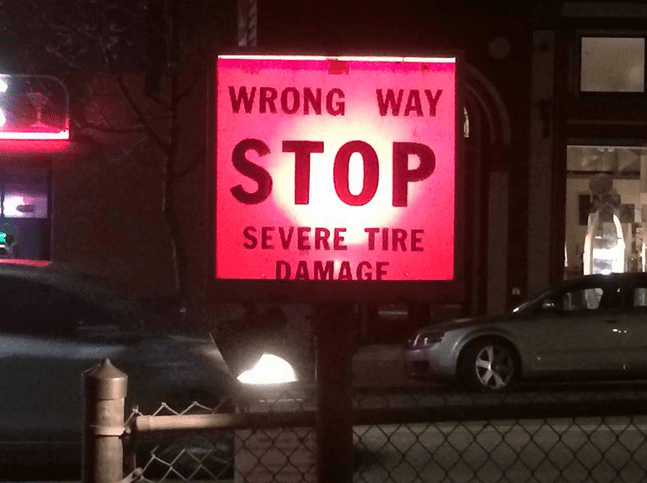 Last week I stated that I was going to bring my best and honest out-of-the-box self to the Mormon pew for a year. Just to see what happens. Yesterday was Week One and here’s my report:
Last week I stated that I was going to bring my best and honest out-of-the-box self to the Mormon pew for a year. Just to see what happens. Yesterday was Week One and here’s my report:
I belong to a very diverse ward where extending warmth and welcoming is a high priority. That diversity was expressed in the testimonies. Gratitude was extended for God, for the Book of Mormon, for the restoration, for Heavenly Mother, for the Māori language, for food, missionary work, family, conversion, prophets, children, the holy spirit, repentance – and as its January, for a new year to set and work towards goals.
Sitting under all of this was a profound affection for the church. Occasionally this affection found itself in claims of exclusivity, but on the whole, these testimonies spoke of deep gratitude for the church. That shouldn’t be a surprise. I loved it once, and probably in the same way.
It struck me again how much Mormons love the Church. I think they do so because it gives them clarity, direction, purpose and it answers their most important questions. For some, the church picked them up, dusted them down and gave them a wholesome community with life-saving boundaries. In missiology, we call that ‘Redemption and Lift’.
The LDS church provides people with continuity and stability and it offers structure and security. Though Jesus is much less visible in this outpouring of affection, I wonder if that’s because, in the LDS calculation of divinity, Jesus delivers people to the church, the church doesn’t necessarily deliver Jesus to the people.
That probably sounds terse. I don’t intend it to be so. But I heard this progression repeated in the subtext of the testimonies:
Jesus lives
God lives
The Book of Mormon is true
That makes Joseph Smith a prophet
And therefore the Church is true.
In this calculation, the church seems to be understood as the institutional representation of Jesus. The traces, the personhood, power and authority of Jesus are embodied in the church and its priesthood so that to love the church is to love Jesus. That lead me to newly appreciate why so many Mormons are angry with or wary of me. I thought that I was defending Jesus and Christianity by criticising the church, but I think all I’ve been doing is hurting that which many have come to depend upon for their identity, belonging and their reason for being – the Church. So, I need to take responsibility for the hurt that my critique inflicts. But, it also explains why many Mormons can’t understand how my love for Jesus and my passion for the divine could exist outside of my love for the church. If the church is Jesus then loving the church is the only trustworthy expression of that love.
One speaker beautifully expressed, “It’s nice to have an anchor – because the seas are rough,” reminding me that my tugging at the anchor and threatening to unmoor the ship seems a cruelty.
This leaves me to ask myself, who am I to haul up the anchor? Who am I to disrupt the certainty that offers so much coherence and meaning for these good people? What right do I have, and am I even trustworthy myself?
The trouble is, I’m not sure I can be talked out of my discomfort with certainty as something to be defended. Sure, certainty is something we pass through – it’s a necessary part of our maturation, but it’s not the end goal? In Sunday School we talked about Moses’ wonder at our human nothingness. Many took that to mean that God was made more lovable because he loves us in our insignificance. But I took it to mean that in my incapacity to really know God, and in living in the wildness and beauty of God’s unknowability I am filled with an ever-widening capacity for God. I wanted to share this reflection but I think, happily for the ward, all of this certainty rendered me mute.
So, this week I’m thinking about certainty and its spiritual and material effects on a life of faith and I’m mindful of Peter Enn’s fabulous book on ‘The Sin of Certainty.’
“Correct thinking provides a sense of certainty. Without it, we fear that faith is on life support at best, dead and buried at worst. And who wants a dead or dying faith? So, this fear of losing a handle on certainty leads to a preoccupation with correct thinking, making sure familiar beliefs are defended and supported at all costs. How strongly do we hold on to the old ways of thinking? … Preoccupation with correct thinking. That’s the deeper problem. It reduces the life of faith to sentry duty, a 24/7 task of pacing the ramparts and scanning the horizon to fend off incorrect thinking, in ourselves and others, too engrossed to come inside the halls and enjoy the banquet. A faith like that is stressful and tedious to maintain. Moving toward different ways of thinking, even just trying it on for a while to see how it fits, is perceived as a compromise to faith, or as giving up on faith altogether. But nothing could be further from the truth. Aligning faith in God and certainty about what we believe and needing to be right in order to maintain a healthy faith—these do not make for a healthy faith in God. In a nutshell, that is the problem. And that is what I mean by the “sin of certainty.”
Thus, after week one, I’m not convinced by all of this certainty, but I understand it’s appeal and even its limited necessity. But I wonder how spiritually useful certainty is if embraced as a shared expectation. Of course, it’s useful for social management but it’s not kind to our personal growth – it certainly hasn’t been kind to mine.
I sat with many questions after the meeting – processing them with Nathan.
‘What if everyone who no longer needs certainty left the LDS Church? What would become of it then?’
‘Would it be right to claim a space in the LDS Church as someone who loved and lived with honesty and openness into their uncertainties?’
‘Could the LDS Church ever admit their limited ability to hold its members beyond certainty? In Fowler’s Stages of Faith reckoning, that would make the Mormons a stage 2.75 church in perpetuity. Could the Church of Jesus Christ of Latter-day Saints be more than that?’
And finally, ‘Could I ever really belong in the LDS Church again?’












